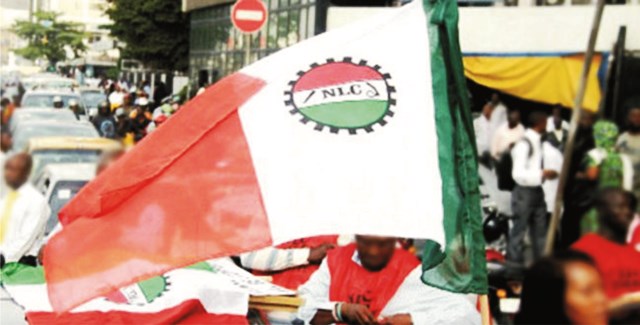Business
Rivers NLC Crisis: Unions Fault Itubo’s Second Term Bid

The bid by the incumbent chairperson of the Nigeria Labour Congress (NLC), Rivers State Council, Commrade Beatrice Itubo, for second term in office has triggered off widespread criticisms from the affiliate unions.
In an interview with The Tide yesterday, in Port Harcourt, the unions called on the outgoing NLC boss to step aside for a more competent and qualified person.
The State Secretary, Administration of Amalgamated Union of Public Corporation, Civil Service Technical and Recreational Service Employees (AUPCTRE), Comrade Tobins Tamunoiminabo, said the move by Itubo to seek second term in office when she had retired from active service is against the labour law.
He said that even the recent labour guideline states clearly that the contestant must have spent four years in service to qualify for elective position, adding that the NLC chairperson’s desire to seek a second term “is an error,’’ he said.
“Labour movement in the state is dead and the workers are suffering, no promotion, increment or gratuity. We need somebody that will put things in order’’.
The chairman of the Nigerian Union of Journalists, The Tide Chapel, Comrade Akujobi Amadi, felt that the chairperson should step aside, because according to him, under her first tenure, workers did not benefit.
“If she did not achieve anything when she was in active service, is it at the retirement level that she will achieve something for workers?
“Her claim of contesting under the pension union is neither here nor there because her check-off has not gotten to the union for once six months after her retirement’’, he said.
The Chairman noted that the NLC Joint Council has not been active in the state due to the nonchalant attitude of the labour leadership, insisting that there is an urgent need for the delegates to consider interest of the workers.
Another senior member of NLC who pleaded anonymity faulted the move by NLC chairperson, saying that Article 20 of NLC says, “if you are holding a position in NLC and retires, you should leave the position immediately.
“The fact that SEC allows her to finish her tenure does not guarantee her the right to seek for a second term which will set a bad precedence.
He noted that Adams Oshiomhole example, which Itubo relies on was an illegality and should not be allowed to continue.
In her contribution, Rivers State Women Committee Chairperson of AUPCTRE, Joy Tonye, expressed concern over the second term bid of Mrs Itubo, saying that she was not even qualified to contest for her first term bid because she did not meet the requirements of the NLC constitution which stipulated four years on active service prior to contest.
Business
NCDMB, Dangote Refinery Unveil JTC On Deepening Local Content

Business
Industry Leaders Defend Local Content, … Rally Behind NCDMB

Business
Replace Nipa Palms With Mangroove In Ogoni, Group Urges FG, HYPREP

-
News20 hours ago
FG Renames University of Maiduguri After Buhari …As Tinubu Pours Encomiums On Late President
-
News22 hours ago
PCRC Dismisses Claims Of Police Strike As Fake, Mischievous
-

 News18 hours ago
News18 hours agoRivers PDP Debunks Sale Of LGA Election Forms
-
Niger Delta21 hours ago
Bishop Mocks Fake Prophecy Seekers … As Priests Relive Challenges At Ordination Ceremony
-
Rivers24 hours ago
Macobarb CEO Cries Out, Says No Indigenous Contractor Can Win Case Against NLNG Or Oil Majors in Nigerian Courts …As Justice Nwogu Throws Out Macobarb’s N5.74bn Claim
-
Rivers20 hours ago
Motor Spare Parts, Industrial Generators Dealers’ Union Swears Gets New Chairman in Port Harcourt
-
News22 hours ago
NUP Denies Planned Protest Over N32,000 Pension Increment
-

 Women18 hours ago
Women18 hours agoWhat To Know About Fufu, Loi Loi

